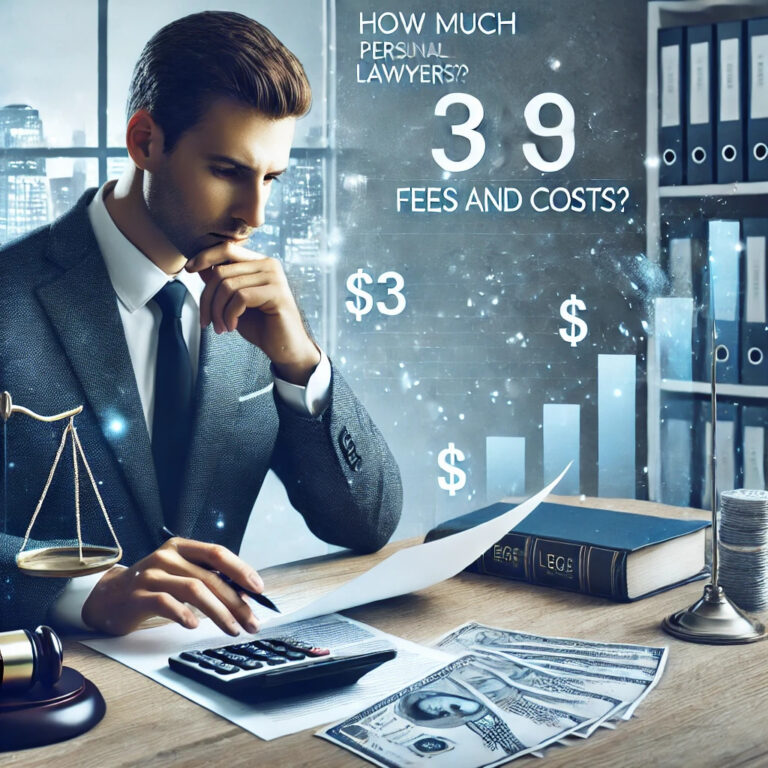Lawyer or attorneys practice in a variety of fields, including family law, commercial law, personal injury, criminal defense, and others.

How to Choose the Best Personal Injury Lawyer Near Me
Choosing a personal injury lawyer can feel like a big decision. With so much at stake, like getting fair compensation for your injuries and ensuring you’re properly represented, it’s key to have a lawyer you can trust to handle your case well. Let’s dive into what you need to know to find the best personal injury attorney for your situation.
Why the Right Personal Injury Lawyer is a Game-Changer
Personal injury cases can feel overwhelming—hospital bills, lost wages, and stress from the incident itself are already a lot. A good lawyer will not only guide you through the legal system but will fight to make sure you get fair compensation, especially when you’re up against big insurance companies. So how do you know you’ve got the right person on your team?
Read More – 5 best lawyers in new york
The Path to Finding the Best Lawyer for Your Case

1. Do Your Homework on Personal Injury Lawyers in Your Area
Start with a little digging online. Websites like Super Lawyers, AVVO, and Martindale-Hubbell list top-rated attorneys based on real client reviews and professional achievements. You want a lawyer who specializes in personal injury cases similar to yours—whether it’s a car accident, slip-and-fall, or something else. Getting this right ensures your lawyer has the know-how needed for your specific situation.
2. Look into Their Background and Success Stories
After narrowing down your options, it’s time to dig deeper. Ask yourself:
- How long have they been practicing in personal injury law?
- Do they have a track record with cases similar to mine?
- Are they familiar with state-specific laws that might impact my case?
A lawyer’s experience with cases like yours can make a big difference in how they handle your claim. Some firms share their case results and client stories on their websites, which can give you an idea of their track record and help you picture what working with them might look like.
3. Read Real Client Reviews
Client reviews give you insight into what it’s like to work with a particular lawyer. Google Reviews, Yelp, and legal review sites are great places to look. Pay attention to what people say about communication, support, and transparency—these things make a huge difference when you’re dealing with a personal injury case. If you see patterns of negative feedback, especially about hidden fees or lack of communication, that’s a red flag.
4. Take Advantage of Free Consultations
Many personal injury lawyers offer free initial consultations, which can be in person or virtual. Use this time to get a feel for their style and experience and see if you’re comfortable with them. Be sure to ask about:
- Their strategy for your case
- How they handle fees (most personal injury lawyers work on a contingency basis, meaning they only get paid if you win)
- Any challenges they foresee with your case
Consultations are also a great time to get a sense of the lawyer’s communication style. Do they explain things in a way that’s easy to understand? Are they upfront about fees and costs?
Questions You’ll Want to Ask During a Consultation
- What’s your experience with cases like mine?
- Do you regularly take cases to trial, or do you settle most of them?
- What fees or costs can I expect?
- How will you keep me updated on my case?
These questions will give you a good feel for the lawyer’s approach and whether they’re a good match for what you need.
Read More – Top 10 – Bismarck Trucking Accident Lawyer
Understanding Legal Fees and Payment Structures
Most personal injury lawyers work on a contingency fee basis, meaning they get paid only if they win your case. Their fee is typically a percentage of your settlement or award, often around 33%. It’s a good setup for people who need a lawyer but don’t have the funds upfront, as it makes legal representation accessible. But be sure to clarify:
- Any additional costs, like filing fees or expert witnesses
- How expenses are handled if you don’t win your case, as some lawyers charge for certain services regardless of the outcome
Contingency fees ensure that your lawyer has your best interest at heart because their payment depends on your success.
Big Firms vs. Small Firms: What’s Best for You?
Bigger personal injury firms may have more resources, such as in-house investigators and expert witnesses, which can be a big asset for more complex cases. On the flip side, smaller firms or solo practitioners may offer more personalized attention, which can be a plus if you want a closer working relationship with your attorney. Consider what feels like the best fit for you.
Red Flags to Watch Out For
Be cautious of lawyers who:
- Guarantee specific outcomes – No lawyer can honestly promise a win, and such promises can be misleading.
- Aren’t upfront about fees or costs – You should know exactly what you’re getting into.
- Pressure you into hiring them quickly – Good lawyers understand the importance of informed decisions.
- Have a poor track record with communication – If they’re hard to reach now, it could be worse once you’ve hired them.
FAQs for Choosing a Personal Injury Lawyer
How long does a personal injury case usually take?
It depends on your case’s complexity and whether it goes to trial. Some cases settle within months, while others can take over a year.
Can I switch my lawyer if I’m unhappy with their representation?
Yes, you can change lawyers if you’re unhappy, but make sure the new lawyer is willing to take over smoothly without disrupting your case.
What’s the statute of limitations for personal injury claims?
This varies by state but is generally between 1-4 years. It’s crucial to act quickly and speak to a lawyer to avoid missing your chance to file.
Will my settlement be taxed?
Most personal injury settlements aren’t taxable, but consult your lawyer or a tax professional to understand any specific tax considerations.
In Closing
Finding the right personal injury lawyer is a big step, and it’s worth investing time to get it right. By checking credentials, reading reviews, and asking key questions, you can find a lawyer who aligns with your needs and will fight for the best possible outcome. Trust your instincts, look for transparency and communication, and choose a lawyer who makes you feel confident and supported.









